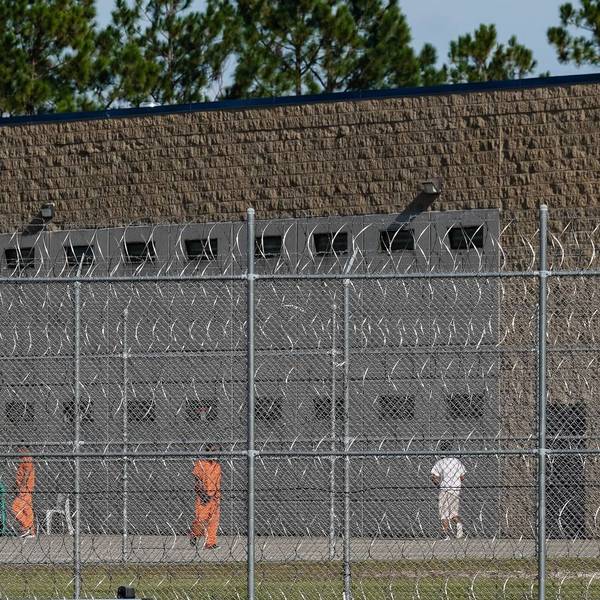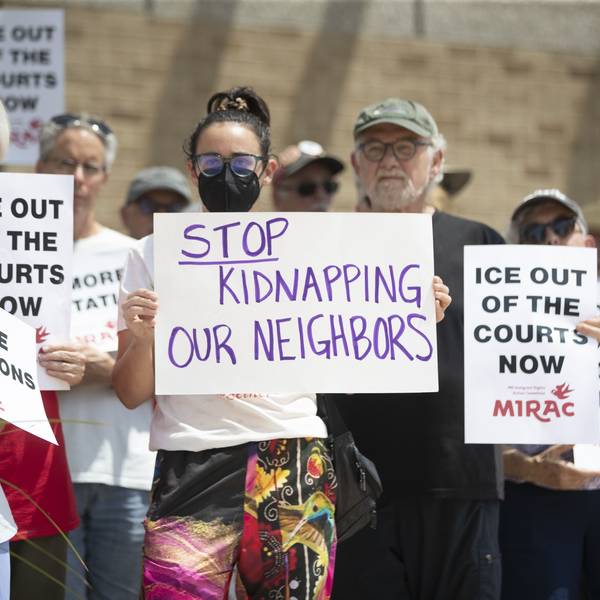A federal judge in Ohio on Friday granted a temporary restraining order against the campaign of Republican presidential nominee Donald Trump, as well as his longtime adviser Roger Stone, to prohibit attempts to harass voters in the crucial swing state.
The case, brought by the Democratic National Committee (DNC), is just one currently being weighed by numerous states alleging that representatives of the Republican Party and the Trump campaign are engaging in illegal voter intimidation efforts.
According to Cleveland.com, U.S. District Judge James Gwin "said he will order the restraining order against Trump's campaign and Stone," who runs the controversial "Stop the Steal" organization, which is recruiting so-called "Vote Protector Exit Pollers" for election day. Gwin "did not order it against the Ohio Republican Party, saying there was not enough evidence to show that a restraining order against it was needed."
Further, Gwin "did not specify exactly what will or will not be allowed but said the order would likely be generic and prohibit both Democrats and Republicans from any harassment of people entering and leaving polling places," the outlet reported.
Throughout his presidential campaign, the GOP nominee has repeatedly called on his supporters to help ensure "ballot security" on election day.
Attorney Subodh Chandra, who documented Friday's hearing on Twitter, noted that during the trial Gwin referenced these statements, insinuating that they were inciting aggressive poll-watching.
Stone was reportedly ordered to testify during a similar hearing in Nevada on Friday.
Ahead of the trials, Rick Hasen, professor of law and political science at University of California Irvine and blogger with the Election Law Blog, who has been following the case, said that "the lawsuits have already borne fruit by getting the campaign on the record with its plans and promises not to intimidate voters."
Hasen wrote at Slate on Friday:
In an important development on Thursday afternoon, the Trump campaign in response to the lawsuits sent an email to Nevada campaign workers describing for them what constitutes illegal harassment and what constitutes good behavior. By getting Trump on the record promising not to harass voters with its "ballot security" activities, the Democrats have significantly lessened the chances of Trump-driven voter intimidation on Election Day.
As Politico's Josh Gerstein recently explained, the DNC suit was borne out of the 1982 Consent Decree, which "settl[ed] a case alleging that GOP pollwatchers sought to intimidate minority voters in a practice then known as 'caging,'" where voters are sent mail before being removed from the voting rolls. As Hasen notes, this practice is "still happening this week in North Carolina."




